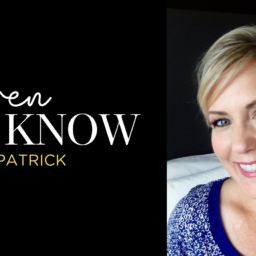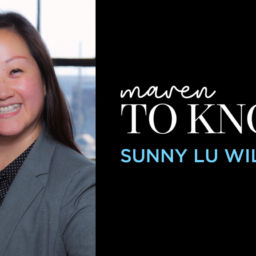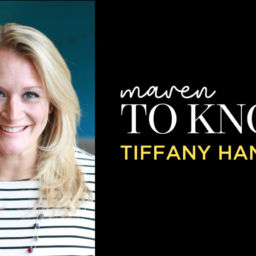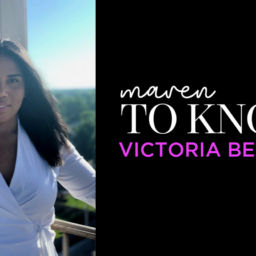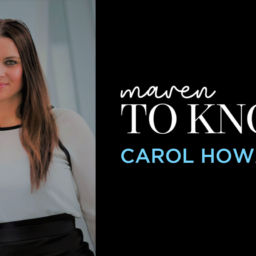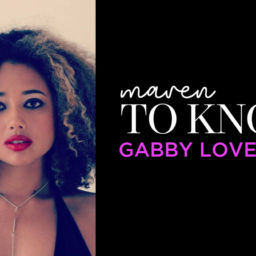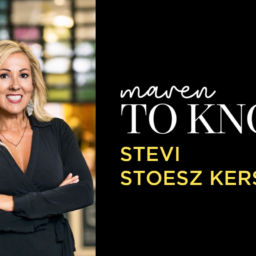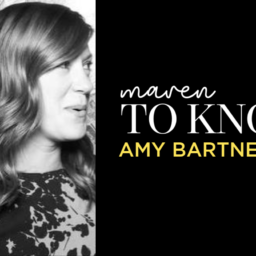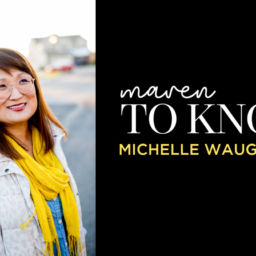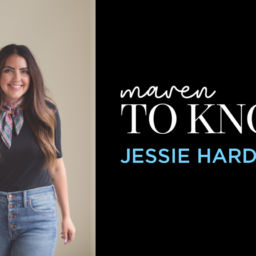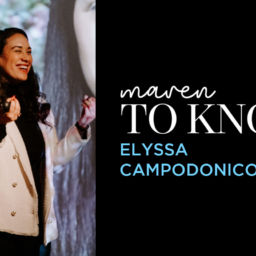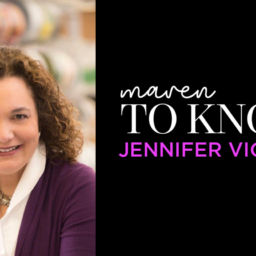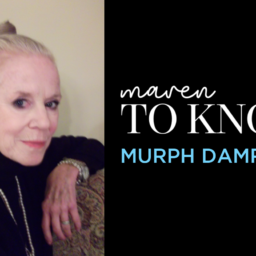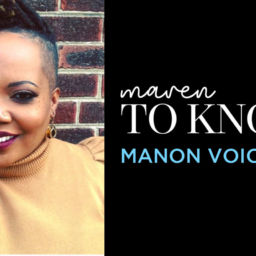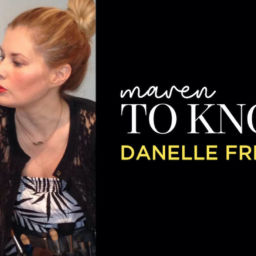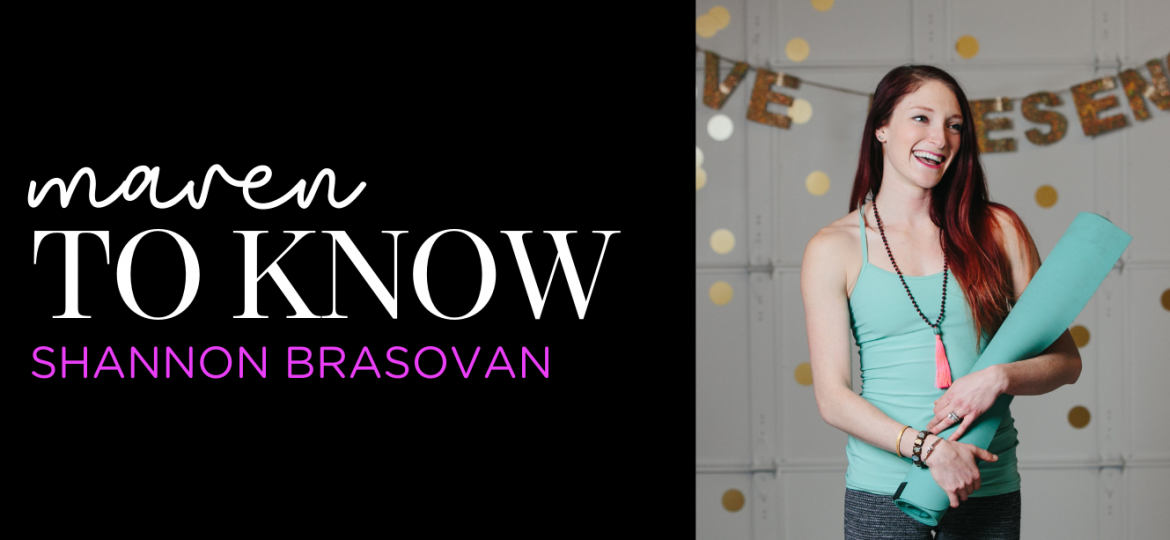
Child Mind Institute estimates that 10-20% of women in college suffer from an eating disorder, citing full-blown disordered eating appearing between the ages of 18 and 21. Shannon Brasovan, chief yoga officer at Practice Indie, found herself as part of that percentage while studying musical theatre and dance at Point Park University. It wasn’t until she enrolled in a one-credit hour yoga class that she started to change her perspective.
“I started practicing yoga about 15 years ago,” she says. “Yoga was actually the thing that saved my life. I really credit it to being formative in my entire existence. I started my journey in the fitness and wellness industry right out of college and haven’t looked back since.”
Originally from Birmingham, Ala., Brasovan moved to the Circle City about 10 years ago when her husband decided to open the first downtown CrossFit. After working at Lululemon for a handful of years, she transitioned into a job at ExactTarget (now Salesforce) as a supervisor for client advocates around the same time. She started offering yoga classes to its CrossFit students, which filled up fast even as they added more. Thus, Practice Indie was founded.
“I was practicing a ton and I just saw an opportunity for more spiritually-based yoga,” she says. “I wanted to start a studio that still engaged people like myself who are super physically oriented but also help them find the philosophy that so drastically changed my life.”
Even though she’s relocating back to Birmingham soon, we found some time on her schedule to learn how people can fit yoga into their busy lives, the importance of flexibility, and the one thing people are surprised to learn about her.
Maven superpower: Encouraging people to live their dreams.
You credit yoga to saving your life. Can you expand on that?
I had an eating disorder in college and like most people in college, I was super lost. I was trying to be everything that everybody expected me to be and it was nearly killing me. And my yoga teacher at the time was the first person who had ever said, “No matter what you do, no matter what you think you’re supposed to do, you are enough, and you are whole as you are.” There’s nothing else truer than that and it was the first time I didn’t equate my worth to my job and to my production.
What does yoga give you? What does it take from you?
The practice itself gives me stability and a place to operate from curiosity. And it takes from me distractions. It gives me something to focus on so it sort of takes my distractions. Yoga is this fountain of continual giving, so it just takes distractions and gives me clarity.
What’s your favorite yoga style? How can people find their own preferred style?
My favorite yoga style isn’t really a thing anymore, but it used to be called anusara. Basically, it’s a style that combines a strong physical practice that’s steeped in tradition and philosophy. And I think people can find their style based off of the three things we’re trying to yoke.
People should be looking for one, what kind of physical engagement are you looking for? Are you looking for something fast-paced and super muscular and sweaty? Are you looking for something slow and stretchy? So, the first thing you have to look at is what is your body looking for? The next thing is, what is your mind looking for? Are you looking for loud music and something to distract you and something to just help you kind of quell the chaos? Or are you looking for something super quiet and still. And then the spirit. We yoke mind, body, and spirit. In the spiritual realm, are you looking for something to assist in your spirituality, like something that boosts it and gives you things to question and think on?
How important is flexibility when practicing yoga?
Flexibility of the mind is more important than flexibility of the body. I joke with people that if you can touch your toes coming to me, then you’re taking away my job security. I don’t need anyone to actually ever be flexible physically because it’s less about touching your toes and more about what you learn on the way down. You have to be flexible in your mind because almost every time someone starts a yoga practice, it opens their mind to things they could have never become clear about. It starts from the body and it works inward. So you need to be flexible of the mind but not flexible of the body.
What words do you have for beginner yogis?
I would advise them to first ask what they’re using yoga to solve for. What is the problem you’re trying to solve by starting a yoga practice because a lot of people come to yoga for flexibility of the body? I usually joke that stretching without breath focus is just crappy mat gymnastics.
If you’re coming to yoga to get a stretching routine, just do a stretching routine. And you can find so many resources without having to dive into the full yoking of mind, body, spirit without doing yoga. You can do a stretching routine and that’s plenty. If you’re somebody who is a little lost, which I came to yoga a lot lost, then it’s getting clear on what you are seeking. Are you seeking to love yourself? Are you seeking to feel better in your body? Are you seeking to feel calmer? From there, you search for teachers or communities or lineages, like teaching styles that match the goals that you have, and your references. Like, I have a total potty mouth, so I like teachers who aren’t afraid to use the F word.
How can people with a busy schedule incorporate yoga into their routine?
Somebody once said, “The thing to remember about the most important thing is to make the most important thing, the most important thing.” And I see it as whenever we say we’re going to make time for something, it’s instantly not a priority. I don’t make time to make my kids breakfast, it’s not an option. They have to eat. The same thing is true of my yoga practice. It’s not about finding time. It’s about deciding if it’s important enough for it to be a priority or not. If it really matters, then it needs to become something that’s not something you make time for, but it truly is like just making breakfast, it’s something you just do.
RELATED: MAVEN TO KNOW: EMILY MASENGALE
What’s the best advice you’ve ever received?
The best advice I ever received was actually the worst advice I ever received. Someone once told me, “Never let them see you cry,” and I lived by it forever… then one day I just cracked and started wearing my emotions on my sleeve and I’ve never looked back. Life is too short to play poker with your face and to hide your emotions. Telling people I love them openly, crying without hesitation, being the loudest laugher in a room, these are things I cherish and I’m grateful I tried on someone else’s way of doing it to realize it’s not for me.
What hobbies do you have outside of yoga?
I am really into gardening. I am a horrible novice guitar player, but I love it. I read a lot. I’m a big reader. I read all the time.
What’s something people might be surprised to learn about you?
I’m an introvert. I’m very introverted and people tend to think I’m extroverted.
Samantha Kupiainen is a regular Indy Maven contributor.
Want to be featured as a Maven to Know? Sign up for our Membership Program—we’d love to have you! See all the Maven to Know features we’ve shared so far.
All of our content—including this article—is completely free. However, we’d love if you would please consider supporting our journalism with an Indy Maven membership.








